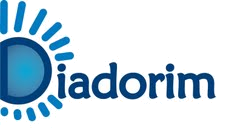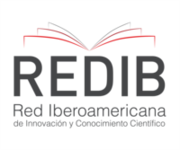Trabalho e educação no pensamento (neo)liberal e histórico-crítico: fundamentos para pensar a reforma curricular no ensino médio
DOI:
https://doi.org/10.35819/tear.v7.n1.a2527Resumo
Resumo: O presente artigo tem o objetivo de identificar os principais aspectos de duas propostas para a formação das classes trabalhadoras, radicalmente opostas teórica e metodologicamente. De um lado, a matriz (neo)liberal, baseada nas idéias de Adam Smith e Friedrich Hayek; do outro, a matriz histórico-crítico, fundamentada nas idéias de Karl Marx e Antonio Gramsci. Trata-se de pesquisa histórica e bibliográfica, com o propósito de demonstrar o conservadorismo do discurso do governo Temer, que tenta apresentar como “novo” as mudanças efetuadas no Ensino Médio, por meio da Lei nº 13.415/2017. O estudo demonstra que o novo desenho curricular atende a interesses antigos: o de reforçar a histórica dualidade estrutural do ensino brasileiro, retomando a formação instrumental e fragmentada proposta na Lei nº 5692/71, do período da ditadura civil-militar, e no Decreto nº 2208/97, editado no governo de Fernando Henrique Cardoso. Conclui que, com a retomada da agenda neoliberal, os planejadores da reforma buscam adequar o Ensino Médio as demandas econômicas e de mercado, abandonando o projeto de formação humana e integral, defendido pelos teóricos da matriz histórico-social e presente nas Diretrizes Curriculares Nacionais para o Ensino Médio, de 2012. Além de abandonar os objetivos previstos na LDB (1996) para o Ensino Médio, entre eles, desenvolver a autonomia intelectual e o pensamento crítico dos estudantes, por meio da articulação teoria e prática.
Palavras-chaves: Trabalho. Educação. Neoliberalismo. Teoria Histórico-Social. Ensino Médio.
WORK AND EDUCATION IN THE NEOLIBERALISM AND HISTORICAL SOCIAL THEORY: FUNDAMENTALS FOR REFLECTING CURRICULUM REFORM IN MIDDLE SCHOOL
Abstract: This article aims to identify the main aspects of two proposals for the formation of the working classes, radically opposed theoretically and methodologically: the liberal matrix, based on the ideas of Adam Smith and Friedrich Hayek; and the historical-social matrix, based on the ideas of Karl Marx and Antonio Gramsci. It is a historical and bibliographical research, with the purpose of demonstrating the conservatism of the Temer government`s discourse, which attempts to present as "new" the changes made in High School, through Law nº 13.415 / 2017. The study demonstrates that the new curriculum design serves old interests: to reinforce the historical structural duality of Brazilian education, retaking the instrumental and fragmented formation, proposed in Law 5692/71, of the period of the civil-military dictatorship, and in Decree nº 2208/97, edited under the government of Fernando Henrique Cardoso. It concludes that, with the resumption of the neoliberal agenda, reform planners seek to adapt high school to economic and market demands, abandoning the project of human and integral formation, defended by theorists of the historical-social matrix and present in the National Curricular Guidelines (2012). In addition to abandoning the objectives set forth in the LDB (1996) for High School, among them, to develop the students' intellectual autonomy and critical thinking, through the articulation of theory and practice.
Keywords: Work. Education. Neoliberalism. Historical-Social Theory. High School.
Downloads
Downloads
Publicado
Como Citar
Edição
Seção
Licença
Autores que publicam nesta revista concordam com os seguintes termos:
a. Autores mantêm os direitos autorais e concedem à revista o direito de primeira publicação, com o trabalho simultaneamente licenciado sob a Licença Creative Commons, que permite o compartilhamento do trabalho com reconhecimento da autoria e publicação inicial nesta revista a partir dos critérios abaixo:
CC BY-NC – Uso Não Comercial (NC): Os licenciados podem copiar, distribuir, exibir e executar a obra e realizar trabalhos derivados dela, desde que sejam para fins não comerciais .
b. Autores têm autorização para assumir contratos adicionais separadamente, para distribuição não exclusiva da versão do trabalho publicada nesta revista (ex.: publicar em repositório institucional ou como capítulo de livro), com reconhecimento de autoria e publicação inicial nesta revista.
c. Autores têm permissão e são estimulados a publicar e distribuir seu trabalho online (ex.: em repositórios institucionais ou na sua página pessoal) a qualquer ponto antes ou durante o processo editorial, já que isso pode gerar alterações produtivas, bem como aumentar o impacto e a citação do trabalho publicado.













